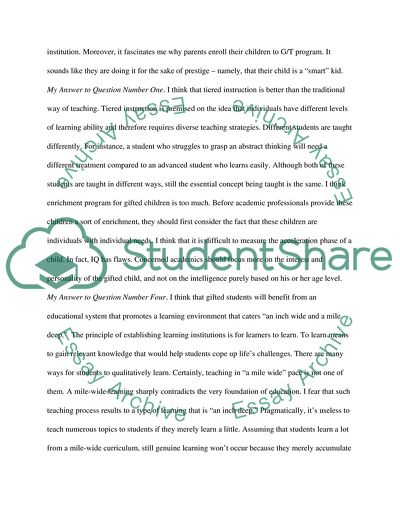Response to the Summary Article entitled Nurturing Giftedness in Young Assignment. Retrieved from https://studentshare.org/education/1568918-article-summary-response-and-discussion-question-response
Response to the Summary Article Entitled Nurturing Giftedness in Young Assignment. https://studentshare.org/education/1568918-article-summary-response-and-discussion-question-response.


